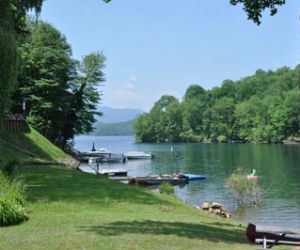While it may not be something you think about on a regular basis, earthquake insurance is something to consider. With the recent quake on the east coast and other natural disasters, this oft-overlooked insurance policy may be a nice luxury to have (better safe than sorry, after all.) A recent post on the
Equifax Personal Finance Blog explains some of the peculiarities of earthquake and flood insurance and encourages homeowners to review their policies.
In “
Let’s Stop Denying It: We Need to Buy Earthquake and Flood Insurance—Now!” guest blogger Loretta Worters of the Insurance Information Institute looks at earthquake and flood insurance in comparison to normal homeowners insurance. Even though her article was written after last year’s tsunami in Japan, it is still timely and informative.
Although you’ll want to read the full article for complete details and relevant links, keep in mind that earthquake and flood insurance policies are structured differently than regular homeowners insurance policies. For example, deductibles on earthquake policies are usually a percentage of the structure’s replacement value rather than a set amount. The deductibles can range anywhere from two to 20 percent.
Flood insurance is handled by the federal government through the National Flood Insurance Program (NFIP). Even though the government is involved, this type of insurance should be available through your normal provider. NFIP coverage sets a limit of $250,000 for property and $100,000 for contents. If you don’t believe this is enough, especially if you live in a flood-prone area, you can also purchase additional private insurance for extra protection.
Have the recent natural disasters in the United States caused you to consider flood or earthquake insurance? Did you already have policies in place? Read Worters’ full article on the
Equifax Personal Finance Blog, then report back here to let us know.




 After a day spent fishing, boating, swimming, hiking, mountain biking and rafting at Lake Nantahala, you’ll be ready to eat like Bigfoot! Anticipating hungry diners, the Lakes End Diner has come up with the perfect solution for the ravenous appetite worked up from recreation at The Village at Reflection Lake Nantahala.
After a day spent fishing, boating, swimming, hiking, mountain biking and rafting at Lake Nantahala, you’ll be ready to eat like Bigfoot! Anticipating hungry diners, the Lakes End Diner has come up with the perfect solution for the ravenous appetite worked up from recreation at The Village at Reflection Lake Nantahala.